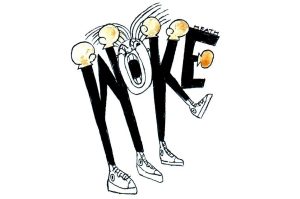In 2019, the aspiring filmmaker Morgan Cooper had a clever idea. He took the cheery early Nineties Will Smith comedy The Fresh Prince of Bel-Air and reimagined it as a gritty social realist drama, even making a low-budget trailer for his idea. It went viral, and the streaming service Peacock turned it into a series, now titled Bel-Air.
The protagonist (still named Will Smith) is again removed to his aunt and uncle’s care after getting involved in gang tensions in West Philadelphia, but the show is largely devoid of jokes. Instead, it tries to offer a serious look at the young African-American experience in the contemporary United States, complete with Instagram influencers as supporting characters. It is not much fun.
Television dramas reinvented as comedies are nothing new. The films of 21 Jump Street and Starsky and Hutch took dated cop dramas and successfully reinvented them with a mixture of affectionate parody and knowing pastiche. But in our increasingly socially aware age, showrunners and producers are reluctant to take a risk on potentially divisive humor. Instead, it is easier to cleave closer to the straight-faced and the sincere, and thereby avoid the possibility of accidentally offending anyone, that most twenty-first-century of social concerns.
Sometimes, this verges on the absurd. I have no idea why the new Pixar film Lightyear exists at all, given that few children would have watched a Toy Story film and hankered for an origin story for the Buzz Lightyear character. I am even more surprised that the marketing material suggests that Lightyear is a would-be heroic adventure, rather than the wry comedy that viewers might expect.
Likewise, I am excited to see Matt Reeves’ new Batman film, but the publicity suggests a three-hour (three-hour!) picture of glum and sepulchral darkness, both literally and metaphorically. Lamentable though the Joel Schumacher films were, at least they came closer to the bright Pop Art sensibility of the Sixties television series than the endless gloom of the Christopher Nolan, Zach Snyder and now Reeves iterations.
There are countless cases where this might happen in the future, because it has been decreed that audiences want “dark” and “serious” over “fun” and “frivolous.” Although Bel-Air has been received without any particular love from critics, its producer and guiding spirit Will Smith has capably managed the transition of his own career from rapper and sitcom actor to Serious Thespian. He is widely expected to win Best Actor at this year’s Oscars for his portrayal of the tennis coach Richard Williams.
It’s a million miles away from the disposable films that brought Smith to prominence, movies like Independence Day and Wild Wild West (probably just as well, in the case of the lamentable latter). But it’s also a useful reminder that the Academy seldom acknowledges either comedies or comic performances for major awards. Nomadland, Parasite, Green Book, The Shape of Water, Moonlight — fine films all (or mostly) but hardly a laugh-a-minute.
Perhaps it is a reflection of our society. Humor’s potential to offend people has never been so great, and livelihoods and careers can be destroyed in an instant. While few care about the multimillionaire comedian or film star whose unguarded actions lead to their downfall, there is something deeply depressing about the thought that once-acceptable shows and films could now be verboten.
There are persistent rumors that Frasier is to be revisited, with or without its stars. I fear that, at this rate, a new series will consist of Dr. Frasier Crane — quite possibly now played by a woman of color — doing his, her or their best to help their increasingly troubled patients out of their oppression. There may not be a lot of laughs, but it will be socially conscious, and that, for many, is a price worth paying. The rest of us may be better off sticking with the unreconstructed originals.





















